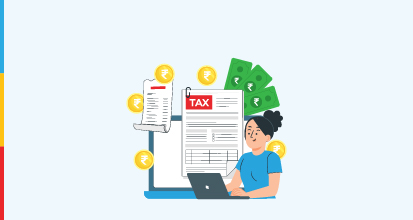Written by : Knowledge Centre Team
2025-07-30
3504 Views
12 minutes read
Share
Short-term investment plans help you get good returns by investing in either low-risk or easily liquidifiable financial products. Long-term investments generally have a high equity allocation in the initial period and skew towards bonds, G-secs, and other debt instruments towards the latter period. The decision to invest, the duration, etc (for short-term or stay put for a long run) depends on the individual’s needs, risk appetites objectives, and benefits.
If you are looking for short-term investment options, consider the following factors first:
Once you have defined your investment plans as recommended above, it is time to evaluate different financial instruments. These 5 (five) investment options are the most popular and therefore you can look at them as safe bets to park your hard-earned money. These are also some of the best tax-saving investments in India:
ELSS has the shortest lock-in period amongst all 80C category financial products. ELSS is a robust investment option for growth as almost 80% of the amount is allocated to equities and the rest goes to fixed income securities.
ULIPs provide the best of both worlds. Some portion, called mortality charges, of your investment goes towards life insurance and the rest is invested in equity or debt instruments depending on your investment goals and time horizon.
Systematic withdrawals after five years help tide you over temporary financial setbacks. Promise4Growth Plus by Canara HSBC Life Insurance goes one step further. When the policy terminates, the deducted mortality charges are added to the fund value. In case of untimely demise, the savings contributions can continue without interruption.
Additionally, the ULIP provides automatic portfolio management for aggressive investors and bonus additions for long-term investors. These strategies will help you manage your portfolio without looking into it regularly. Bonus additions help grow your ULIP’s fund value faster.
NSC is a safe investment backed by the Government of India. Offered at Post Offices, NSC currently generates an annual 7.7% rate of interest. NSC is not a wealth creator and does not deliver inflation-beating returns.
But its safety and accessibility make it an attractive buy. The lock-in period is for 5 years. NSCs can be pledged as collateral to avail loans from Banks and Non-Banking Financial Companies (NBFCs). This instrument is popular because of its availability across the breadth and length of the nation.
An OTP has been sent to your mobile number

Sorry ! No records Found
Thank You for submitting the response, will get back with you.
Retirement planning is essential. A government-backed investment option exclusively designed for senior citizens. Retired citizens can invest their retirement benefits into this scheme and also avail tax benefits under section 80C. The maximum amount that can be invested is lower of retirement benefits and ₹ 5Lakhs.
| Retirement Benefit | Maximum Amount | Investible Amount |
| ₹ 10Lakhs | ₹ 15Lakhs | ₹ 10Lakhs |
| ₹ 25Lakhs | ₹ 15Lakhs | ₹ 15Lakhs |
Say, Surendra retires and takes home ₹ 10Lakhs towards retirement benefits. The maximum amount that he can invest in SCSS is only ₹ 10Lakhs. In the next scenario, if Surendra’s retirement benefit is ₹ 25Lakhs, he can invest up to ₹ 15Lakhs. The tenure of investment is generally 5 (five) years, extendible by another 3 (three) years.
If you are looking for a risk-free investment along with monthly or quarterly interest payouts, 5-year tax-saving FDs are a good match. These FDs are offered by most scheduled commercial banks. Some banks also allow opening such FDs using Net Banking. You can enjoy the advantage of the power of compounding if you opt for reinvestment of interest until the maturity of the deposit.
These 5 (five) options have benefits and advantages unique to each product but all of them are eligible for tax deduction under section 80C of the Indian Income Tax Act. You must evaluate each option against your personal financial goals and opt for the most appropriate one.
Disclaimer - This article is issued in the general public interest and meant for general information purposes only. The views expressed in this blog are solely those of the writer and do not necessarily reflect the official policy or position of Canara HSBC Life Insurance Company Limited or any affiliated entity. We make no representations or warranties of any kind, express or implied, about the completeness, accuracy, reliability, suitability, or availability with respect to the blog or the information, products, services, or related graphics contained in the blog for any purpose. Any reliance you place on such information is therefore strictly at your own risk. You should consult with a qualified professional regarding your specific circumstances before taking any action based on the content provided herein.









We bring you a collection of popular Canara HSBC life insurance plans. Forget the dusty brochures and endless offline visits! Dive into the features of our top-selling online insurance plans and buy the one that meets your goals and requirements. You and your wallet will be thankful in the future as we brighten up your financial future with these plans.